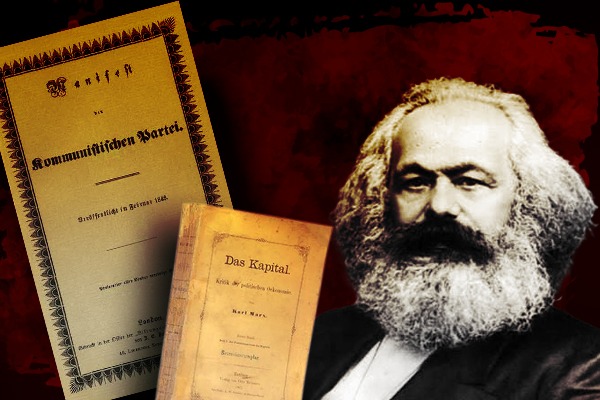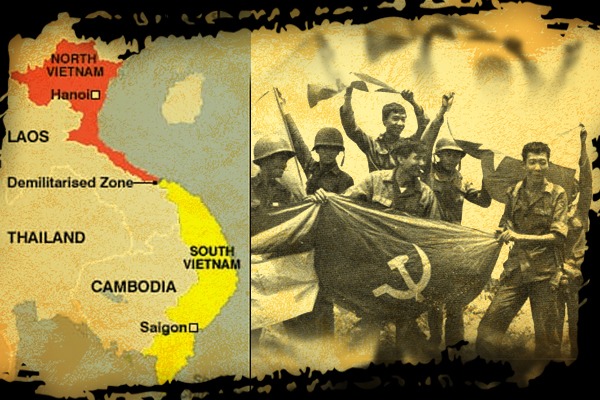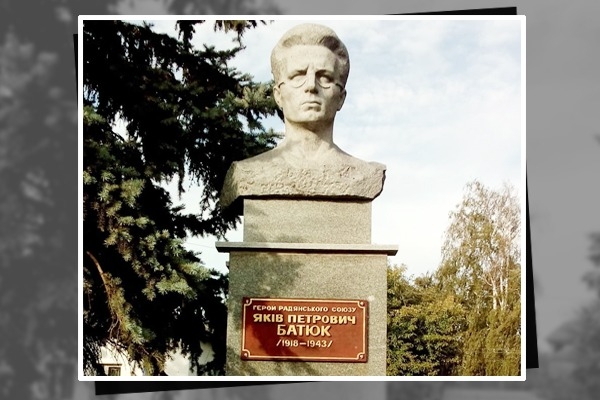[1]
Of late, we are witnessing a new kind of obsession regarding Karl Marx’s thoughts. In the 1960s and 1970s, we had seen a group of Western Marxiologists often make a comparative judgment between the young Marx and the mature Marx, and they gave the young Marx higher grades in terms of breadth of thought. The mature Marx had allegedly lost the critical revolutionary spirit in his concern for man’s emancipation in the narrow atmosphere of party politics and in the routine programmes of class struggle. It was a familiar discourse in our college classrooms and academic seminars. In recent times, especially since the fall of the socialist camp, a new genre of rock music is in circulation about the so-called mature Marx.
Since the 1990s, based on the recent initiative for the publication of the Marx-Engels Gesamtausgabe (abbreviated as the MEGA project), a group of Marxist researchers have been claiming that the Soviet Union, following Engels, Plekhanov, Lenin, Stalin, and so forth, promoted Marx’s thought as a mechanistic, rigorously streamlined scientific doctrine called Marxism. And it was an inviolable replica of European social history. As the new works of Marx, so far unpublished, are made available to the public at large, it is clearly seen that Marx’s thinking was not like that. etc.
Let me say how I discovered the trend.
A letter from a friend of mine, the editor of a left-wing Bengali bimonthly, mentioned an essay – “Karl Marx among Muslims” by Peter Hudis — published in the journal Capitalism Nature Socialism in 2004. The editor had sent me a Bengali translation of the essay and asked for my opinion whether it would be worthwhile to publish the material.
Immediately I sat down to read. The first few pages were quite enjoyable. The author states that some aspects of Marxian and Hegelian dialectics were raised by some lesser-known philosophers in non-European regions some time ago. Abu Yaqub al-Sijistani, a philosopher of the Ismaili Islamic sect of Iran in the 10th century, in explaining the perception of God, gave birth to such an idea of negation of negation. Perhaps, this was the first philosophical formulation of “the negation of negation” eight hundred years before Hegel.
But I would like to raise two objections in this context.
One, from what Hudis quotes from the works of this Muslim thinker, it appears that Sijistani meant negation and negation rather than negation of negation. A statement that refutes an idea must also be refuted in the next step — this is what Sijistani’s point was. However, only a person familiar with the history of philosophy will understand that, although it resembles the Hegelian lexicons, it does not carry or indicate exactly the same meaning in a philosophical context. That is, it is more akin to Aristotelian formal logic. A cat is not a dog, not only a dog, but also not a tiger. Much like this.
Second, the Hegelian as well as the Marxian formulation about negation of negation (as I have shown in one of my works on philosophy) indicates the culmination of a dynamic and changing process by stages. Although an idealist Hegel always used real-world examples to illustrate this principle. Marx and Engels also applied this formula to various socio-economic and natural developmental phenomena. Judging from that point of view, Sijistani’s statement — at least as far as I can find in Hudis’ writings — does not involve any transformative events. It relates to a certain fixed idea.
In view of these two aspects, it is easy to see that the concept of negation in Sijistani’s philosophy was in no way intertwined with dialectical thought, whether as negation of negation or as negation and further negation — however he had viewed it. Nevertheless, to be able to think in this way in the tenth-century philosophy is undoubtedly an advance. I saluted Hudis in my mind for bringing this forward to our notice.
[2]
After that, from the third section I started to recognize the camp of thought Hudis represents. Then I felt an urge to say something more.
What is their theme song?
This group of neo-experts tries to show that most of the books that Marx consciously wrote and published during his lifetime were not so valuable, and did not reflect Marx’s true thoughts. But all the notes that Marx made at different times to be published in the form of future books, or the comments that he wrote in the margins of various books, are all priceless gems. For example, the various draft notes on political economy written in 1857-58 and then in the 1860s by stages, parts of which formed the later work titled Capital, and another part of which was posthumously published much later as the Grundrisse, are gold mines. For example, in 1880-81, notes written in various copy-books reveal the original Marx, etc. This is a very surprising Marx study. What is more surprising is that many Marxists in different countries of the world, even the political activists in the field, do not understand the true nature and direction of this line of research. They are also fascinated by the discoveries of the new manuscripts of Marx! Oh, what a great treasure trove discovered! We have been so blind for so long. They do not see the terrible shock befalling the practice of Marxism for almost two centuries.
Let us give some examples.
Consider Marx’s conception of the Asiatic mode of production. As we know, Marxist historiography shows a general sequence of social development as follows: primitive communist society, slavery, feudalism, capitalism, socialism, etc. It is true that this description is mostly true for some countries in Western Europe. It cannot be fully reconciled with the development of the long history of other countries, not only in Asia or Africa, but even in whole Europe. Therefore, whether consciously or unconsciously, Marxists look to this account as a model to explain their own country’s history.
But that does not mean that we have to set up a new model for non-European countries. If we talk about the Asiatic mode of production, the question will obviously arise: Was that system also the same in China and India? Was there a single type of production system in the Arab land and in Malaysia? We know that it was not. And it can be easily understood.
So, in showing the development of Marx’s non-European thought, can we go even one step further by raising the issue of Asiatic mode of production? What is the gain?
There are more problems.
In Marx’s view, a specific socio-economic system is characterized by the extant relations of production, in terms of class division. Whether a country has irrigation or not does not determine the character of the historical stage of its production. This simple fact is either forgotten or denied by our neo-Marxist experts. Peter Hudis is no exception. Again, it is in the light of these relations of production that one can understand how the owning class collects surplus from the real producers. As Marx pointed out: “The essential difference between the various economic forms of society, between, for instance, a society based on slave-labour, and one based on wage-labour, lies only in the mode in which this surplus-labour is in each case extracted from the actual producer, the labourer.” We know the methods of surplus extraction under slavery, feudalism and capitalism. If we want to show the Asiatic mode of production as a different economic system, it is necessary to identify what is the specific modality for realizing the surplus there – as different from the other three social structures. In some places Marx referred in this connection to a practice of collection of rent in kind by the state. But that is a clear symptom of feudalism. In some places he again spoke of slavery. Thus, unfortunately, no definite light has been thrown on this subject in Marx’s writings. Our current MEGA-expert scholars have also failed to shed any light in this regard. Or maybe, they are not even aware that this has to be done.
Maybe, I suspect, these neo-Marx-scholars perhaps no longer regard Marx’s analysis of class, the nature of class struggle, etc., as Marx’s Marxism. These are the “pseudo-Marxism” of Engels, Plekhanov, Lenin, Stalin, and so on. The “real Marx” moved away from the unilinear class analysis of European societies and dived into the sea of multilinear sociocultural analysis of non-European societies. In various notes, in the margins of many books, he wrote down all those words hideously (probably out of fear of Engels!). Marx’s thought must now be deciphered and recognized by recovering all those notes.
Take, for example, Marx’s words: “According to Indian law the ruling power is not subject to division among the sons; thereby a great source of European feudalism [is] obstructed.” [Cited, Hudis 2004]
The question is, where did Marx get this idea from?
If only he had read the Ramayana and the Mahabharata (assuming Marx had some ideas about them), he would have seen that the narratives of these two great epics had developed and were fuelled by stories of quarrels and fights among the kith and kin over how to divide rulership and royal estates among the sons of brothers. In all the known cases of Indian history, there was a rigid custom of inheritance of the throne along the line of sons. Kings wanted sons from their queens. The Sanskrit dictum was – ‘putrarthe kriyate varyya’ (that is, wife is taken for begetting sons). For a married woman the greatest blessing of the elders was – ‘be the mother of a hundred sons’. No, there was no demand for daughters. So, in this question at least, feudalism in India was no different from that of Europe. If for some reason Marx didn’t know this factuality, it is nothing to brag about.
Again, Marx had reportedly said, “The soil is nowhere noble in India so that it might not be alienable to commoners!” [Cited, ibid] That also cannot be said at all if the long history of India is well known. The war between kings, the Ashwamedha Yajna and Rajasuya Yajna described in detail in the Ramayana and Mahabharata, was for conquest of newer territories. What is it but a design for possession of additional kingdoms? And it would be a trite to remind that kingdoms incorporated land. Readers of Mahabharat may be familiar with the popular saying of Duryodhana — “Without war I shall not dispose of even needle-point amounts of land.” So there is no reason to think that whatever information Marx could garner was always true.
As a result, when Lawrence Krader writes, for Marx “the course of Indian history is to be explained by indigenous, not imported categories” [cited, ibid], that is no longer Marxism; it takes on the mantle of straight postmodern and postcolonial thought. The tools of analysis of world history learned from Marxism must be consigned to the museum.
What was the nature of the Arab caliphate in the Middle East if it was not feudalism? In terms of class judgment and relations of production? Which class did the Muslim Shah who defeated Delhi and Ajmer ruler Prithviraj Chauhan belong to? What was Chauhan’s class identity? Or, will raising this question be known as “importation”?
Rather, it can be assumed that Marx was more careful when writing the notes to get the materials right. He didn’t pay much attention to the factual truth or to an analysis thereof. Later, if it was to be published in a book form, he might have given it fresh thought. But if one who now quotes from those notes and avoids the responsibility of analysis, it is no longer Marxism. And if you want to call these Marx’s thoughts, we shall be the least interested buyers.
[3]
Astute readers will note that all the curiosity and excitement arising from the MEGA project is only about Marx’s new writings. But the title is “The Total Works of Marx and Engels”. If you look at the workshops of the researchers, it would seem that everything new to know can be found in Marx’s new writings. Finding Engels’s new works is nothing to dance about. As if, they already know, it would contain almost all wrong words, there would be mechanical judgment and analysis. So great is their aversion to Engels, and so great is their unconcealed eagerness to express it, that they are at a loss as to what to say when and where.
One such example is right before our hand.
Peter Hudis writes, “Unlike Engels, who tended to uncritically glorify indigenous communal forms in “primitive” societies in his The Origin of the Family, Private Property, and the State, Marx pointed to the incipient formation of class, caste and hierarchical social relations within them.” [Ibid] The references he cites show that this opinion is not his alone, but a collective recipe of this school.
Quite surprising! How could they forget that Engels discussed the classless groups of primitive societies, while Marx considered those ancient peoples among whom class, caste, and stratification had begun? The comparison between the two writers’ different judgments about two different populations in two such completely different historical contexts cannot be justified unless there is a well-crafted desire to put one to blame and glorify the other anyhow. And this is exactly what these scholars are doing.
Another episode from the records of Hudis.
A few days before his death, Marx went to Algeria to take rest and for change. There he found to his amazement, whether rich or poor, good or bad fortune makes no distinction between the followers of Muhammad. Their social intercourse is subject to absolute equality, and is in no way affected by social status. We also have similar experiences. There is no distinction between the rich and the poor in the prayer line. This is a very good thing. But think now, whether Saudi Arabia’s oil Sheikhs consider the Muslims of India or Bangladesh as humans or Muslims at all. Whether there was any response from the Arab sheikhs to the massive attacks on Muslims in various parts of India during or after the Gujarat riots, especially since 2014. Palestinian Muslims have been bombarded to annihilation by Israel for many years. Does it evoke any sense of “absolute equality” (so-called pan-Islamic brotherhood) among the Muslim rulers of Saudi Arabia or Egypt?
In fact, the question of class raised by Marx is a very important issue in real social economy and politics. And on this class question there is no effective distinction between Europe and non-Europe. That teaching of Marx is real and important. If we forget that, reading Marx’s newly received notes will do us no good.
Now let us talk about an interesting incident.

Marx and Engels — both became excited about the prospects of a revolutionary movement in Russia in the 1870s after becoming acquainted with the Russian left-wing intellectuals, and especially after the publication (1872) of the Russian translation of Capital volume one. During that time both of them learned Russian and exchanged long letters with Russian revolutionaries. In so doing they became aware of the mir or village communes in the vast Russian countryside. Engels, however, has no place in the consideration of Hudis or his co-thinkers. They are only interested in what Marx said or wrote. Hudis writes: “While Marx’s overall position was closer to that of the Populists [i.e., Narodniks — A. M.] than the Russian “Marxists” – who argued, contrary to Marx’s own conclusions, that Russia needed to undergo an extensive period of capitalist industrialization before it could be ready for socialism, etc.”
What a strange thing!
Serving a bunch of wrong information and conclusions in one stroke!
One, I had a hard time understanding whom Hudis identified as the Russian Marxists. But surely it cannot be listed by excluding Plekhanov. Let us read what Plekhanov said in 1883 at that very early period: “It goes without saying that neither the author of Capital nor his famous friend and colleague lost sight of the economic peculiarities of any particular country; only in those peculiarities do they seek the explanation of all a country’s social, political and intellectual movements. That they do not ignore the significance of our village commune is revealed by the fact that as recently as January 1882 they did not consider it possible to make any decisive forecast concerning its destiny. In the preface to the Manifesto of the Communist Party (Geneva, 1882) they even say explicitly that under certain conditions the Russian village commune may “pass directly to the higher form of communist common ownership”. These circumstances are, in their opinion, closely connected with the course of the revolutionary movement in the west of Europe and in Russia. “If the Russian revolution,” they say, “becomes the signal for a proletarian revolution in the West, so that both complement each other, the present Russian common ownership of land may serve as the starting-point for a communist development.” (The Communist Manifesto) It will hardly occur to a single Narodnik to deny that the solution of the village commune question depends on such a condition. Hardly anybody will assert that the oppression by the modern state is favourable to the development or even to the mere maintenance of the commune. And in exactly the same waÿ hardly anyone who understands the significance of international relations in the economic life of modern civilised societies can deny that the development of the Russian village commune “into a higher form of communist common ownership” is closely linked with the destiny of the working-class movement in the West. It thus turns out that nothing in Marx’s views on Russia contradicts the most obvious reality, and the absurd prejudices concerning his extreme “Occidentalism” have not the slightest trace of reasonable foundation.” [Plekhanov 1976, 69] Here, it appears, within a year Plekhanov had recalled and expressed satisfaction with what Marx and Engels had written in the joint preface to the Russian version of the Communist Manifesto (not at all different from Hudis’s statement). Not only this, note that Plekhanov had also opposed those who saw Euro-centricism in Marx more than a century before the modern Marx-worshippers.
Second, the Russian Marxists did not speak of the necessity of any long sequence of capitalist industrialization before socialism at all. Neither Plekhanov, nor Lenin. Narodniks argued that capitalism was not possible in Russia due to the existence of the village communes. To them, these Marxist leaders tried to show in their respective times that whether capitalism is possible or impossible — this question no longer arises; a capitalist agrarian economy is already developing in Russia, even in the countryside. Especially on the basis of this analysis, Lenin brought forward the question of building the unity of Russian muzhiks with the Russian proletariat.
And in fact, within a month of the bourgeois democratic revolution of February 1917, Lenin called for a socialist revolution in his April Theses. These are now so well known that only “I shed tears for I don’t see the path with my eyes shut” in the words of the poet Tagore explains their case — otherwise there would be no room for the above accusations of Hudis about the Russian Marxists.
Third, in practice, after the socialist revolution, it was found that the mir or the village commune was of no use. Even eleven years after the revolution, it was not possible to call for the establishment of collective farms and take up the programme. Not only that, even after starting the collective farm movement from 1928, the number of state farms could not be very large for a long time. As a result, regardless of what Marx and Engels had thought or understood when they spoke to the Narodniks, that idea was of no use after the revolution. There was a little lump in that thought. Not only because Engels thought wrong, Marx also got it wrong that day. Although in the 1870s it may not have been so unusual to make that mistake.
But it is really surprising that we have to write these words in the year 2025!








